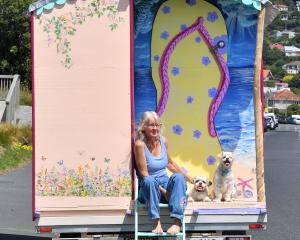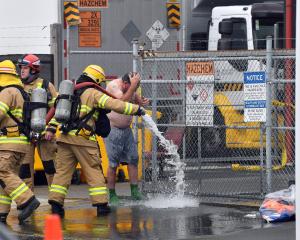Te Kura Kaupapa Maori o Otepoti has had some serious issues since it opened at Fairfield in 1998, but in recent times its fortunes have changed for the better. Reporter Rhys Chamberlain sat down with the school's principal to find out why.
The school year is winding down, but for school principals it never ends.
This is especially true for Te Kura Kaupapa Maori o Otepoti principal Tiahuia Kawe-Small, who has turned around the fortunes of the Maori immersion school.
A humble and quietly spoken woman, Ms Kawe-Small would not admit that a flourishing school was driven by her leadership.
''We look at it as whanau first,'' she said.
''Their support [is] 100%. Without that, it would [be] a lonely journey.
''I couldn't do [it] without the whanau.''
Since its establishment, the school had been plagued with problems, resulting in the implementation of statutory managers and extremely low roll numbers.
Ms Kawe-Small (56), a 25-year teaching veteran from Invercargill, took over as principal at the start of 2013, the fourth principal since 2008, after a disturbing Education Review Office report and a dwindling roll of just nine.
Three years later, a vastly different 2015 Ero report showed the impact Ms Kawe-Small and her school whanau had had.
The report is glowing, positive and heartwarming.
It said pupils were motivated, stimulated and actively engaged.
They had a good understanding of their learning styles and were independent, confident and responsible.
They upheld their identity, language and culture and were proud of their whanau, hapu and iwi.
Pupils displayed strong self-esteem, confidence and discipline and could manage their behaviour.
And, perhaps most importantly, pupils were advocates for te reo Maori.
Ero put the school on its first three-year review cycle in about 10 years and its roll is on track for 45 pupils next year.
Ms Kawe-Small was reluctant to take any credit.
She worked ''24/7'' and made many sacrifices, including leaving her husband at home in Invercargill and giving up release time to be with the children.
It had been the most ''challenging'' three years of her life, but well worth it.
She was the driving force in what was an almost impossible task.
But she will not admit that.
A 2008 Ero report made for tough reading.
It stated the school's 21 pupils were disadvantaged learners, did not receive high quality education, had insufficient opportunities to develop free, open and inquiring minds and did not use te reo confidently or appropriately.
''It was overwhelming, actually,'' Ms Kawe-Small said.
'' I just did not expect what it was like. Integrity was pretty much non-existent. [The parents] were just grateful that someone crazy enough was coming to sort this stuff out.''
She had never been one to back down from a challenge.
It was about ''mana'', Ms Kawe-Small said.
''Teaching the children about their own mana, other people's mana and humbling themselves.
''I'm all about ... talking to people as equals. How we manage our own integrity is who are as a person. That's a fundamental value that we instil in the tamariki.''
Board of trustees chairwoman Victoria Campbell said the school now had a strong, cohesive board of trustees who were well-trained and well informed of their roles and responsibilities.
The school was well led by Ms Kawe-Small, she said.
''It starts with the tamariki. The respect and admiration they have towards her sets the tone. She is an inspiration to all of us. We're grateful and really value her.''
Minister of Education Hekia Parata said kuras were whanau-focused and were an important part of Maori education.
''It is clear to me that when children and young people are in an environment that helps them be confident in their identity, language and culture, they have a much better chance of success. For many Maori [children], that environment is a kura.''












